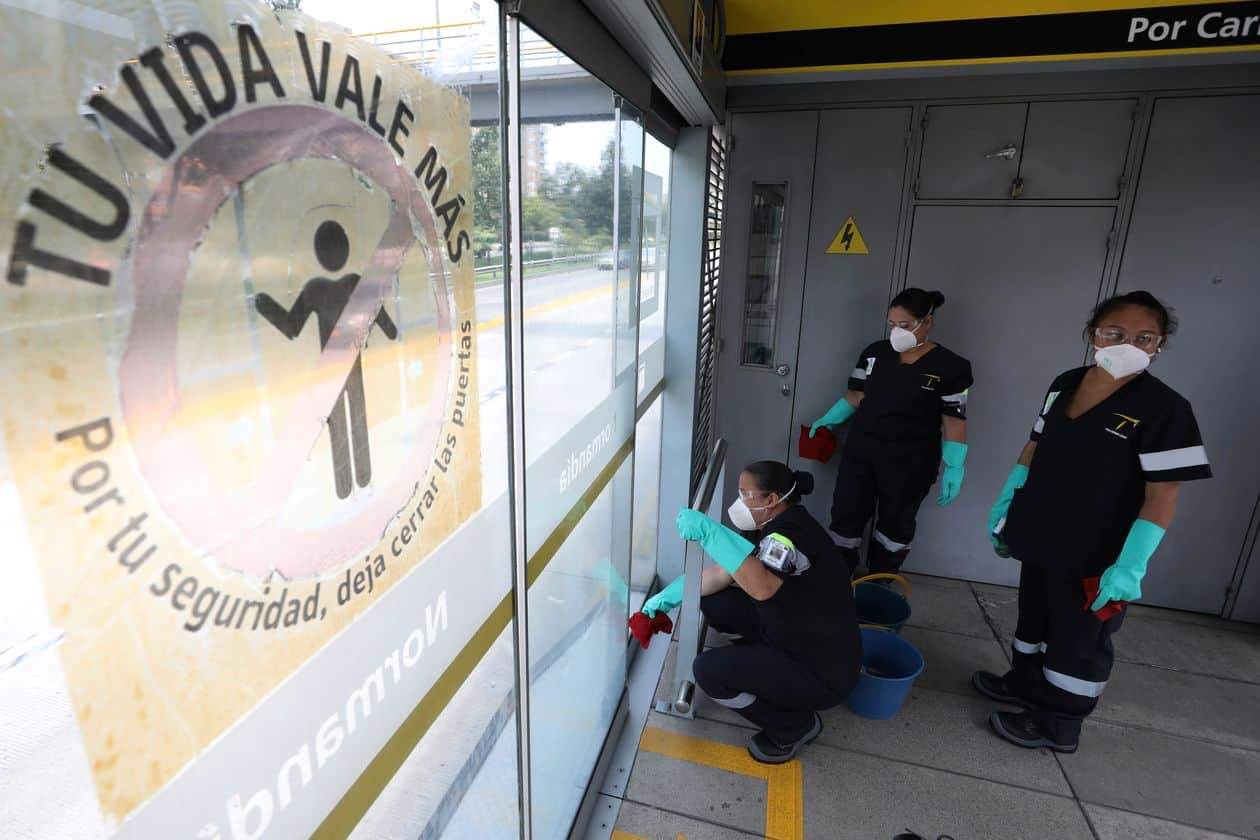Economic Flu Stalks Latin America

If it’s true the novel coronavirus doesn’t like warm weather, it could explain why Latin America has yet to report a large outbreak. Much of the region isn’t tropical, but most of the temperate zones in the Northern Hemisphere have mild winters, and in many places spring is already arriving.
Too bad the annual thaw can’t save the Americas from the economic consequences of a pandemic, exacerbated by a decade of easy money. The meltdown in global stock markets suggests something deeper than a corona recession is at work. And as a version of the old saw goes, when the U.S. gets sick, Latin America gets a lot sicker.
The explanation for the slowdown in the real economy is Covid-19, the disease caused by the novel coronavirus. Transmission of the illness isn’t well understood, the severity of individual cases varies greatly, and public-health authorities are having trouble getting a grip on how many people have been infected.
The virus killed a 34-year-old doctor in Wuhan, China, who attempted to warn his country about it. That authorities in Beijing initially tried to silence him raises questions about China’s claim that it has quickly contained the disease’s spread. Transparency isn’t one of the Communist Party’s strengths.
Yet business investment in the U.S. was already trending down before the virus hit, and we’re overdue for a recession. Even the pandemic doesn’t explain the severity of the stock-market downdraft last week. Yes, there is the madness of crowds, but that too is an unsatisfying narrative. Something else is going on.
That something is fear about U.S. financial-system stability. The immediate concern for central banks is a liquidity squeeze that paralyzes lending and brings down healthy institutions. Walter Bagehot’s sage advice in his 1873 book, “Lombard Street,” was that to avoid panics, central banks, as lenders of last resort, need to make liquidity freely available to solvent institutions, but at a premium.
On Thursday the Federal Reserve announced $1.5 trillion in short-term funding to keep financial markets from seizing up, though there’s no penalty rate. A shortage of dollars in Asia last week hit Japanese and Korean bonds. Access to swap lines should alleviate some of that pressure, and Mexico’s central bank also has swap privileges at the Fed. Other central banks in the region don’t, and they will feel the pinch.
A greater concern is whether the U.S. financial system is facing a solvency crisis, i.e., too many loans going bad and pulling one or more banks under. The Fed doesn’t reassure with its announcement Sunday that it will not only cut its benchmark interest rate to near zero but also buy $700 billion in Treasury and mortgage-backed securities.
The purchases are ostensibly to ensure “the flow of credit.” But this “quantitative easing” was last seen after the 2008 financial crisis, when poorly managed financial institutions were desperate to avoid insolvency and repair their balance sheets.
The worry that banks might be in trouble again is reflected in markets. Bank stocks rallied Friday after the Fed promised to intervene, but bank equity prices were diving more than the broad indexes most of the week. On Wednesday the Journal reported that “the cost of insuring against default on Citigroup debt for five years rose to $115,000 annually from $40,000 this week, according to FactSet.” The price remained “well below the panicked pricing seen in 2008,” but the surge indicated something amiss.
The benign explanation is an expectation that bank profits will underperform as interest rates swoon. But the quality of loan portfolios is also a consideration. So is the adequacy of the stress testing banks have faced since the last crisis.
In an April 2013 speech in Basel, Switzerland, Thomas Hoenig, then vice chairman of the Federal Deposit Insurance Corp., warned deposit insurers that the practice of risk-weighting assets was creating an “illusion that banking organizations have adequate capital to absorb unexpected losses.” If that’s true it would go a long way in explaining fear about banks’ exposure to this downturn. There are also the uncertainties of the humongous and nontransparent interest-rate swap market, where major banks are counterparties to each other.
If the financial system is still shaky after a decade of Fed subsidies, it implies that absurdly low interest rates and quantitative easing have been counterproductive. Grandma has been eating cat food while the banks remain fragile. This is bad for those of us who prefer liberty to socialism.
Former Salvadoran Finance Minister Manuel Hinds writes in his forthcoming book, “Our 1776 Moment: A Defense of Liberal Democracy,” that the damage from the bailout in 2008 went “much beyond economic losses. The crisis and its solution destroyed the faith that people had put in capitalism and liberal democracy.” Enter Bernie Sanders.
The U.S. may yet fight off a lurch to the left. But the ripple effect in Latin America, where collectivists perpetually rail against markets, is worrisome.
Photo: Workers disinfect a bus station in Bogota, Colombia, March 13.
PHOTO: FERNANDO VERGARA/ASSOCIATED PRESS
Link: https://www.wsj.com/articles/economic-flu-stalks-latin-america-11584313895




